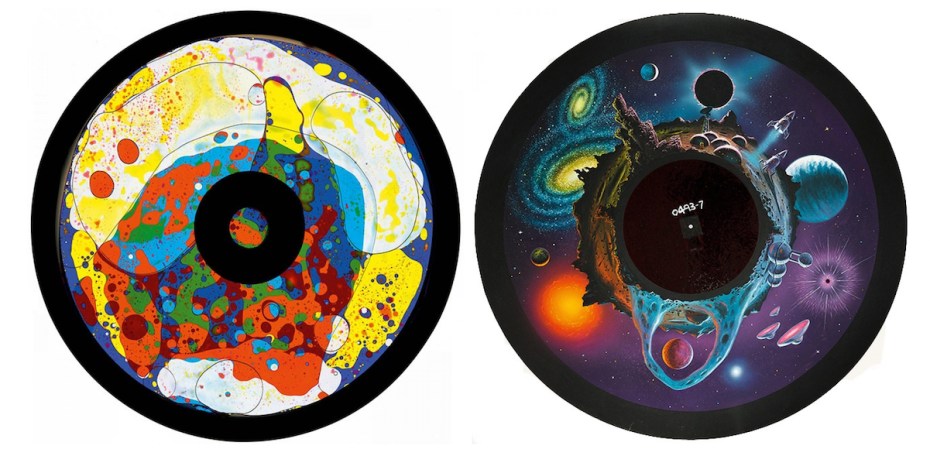Kevin Foakes (aka DJ Food) is an electronic musician known for his work in Coldcut and other projects on the iconic Ninja Tune dance music label. He's also a graphic designer with a penchant for psychedelic light shows of yesteryear—the kinds created with oozing colored oils, overhead projectors, and spinning discs of freaky patterns. Foakes became so obsessed with the latter that he wrote a book about them: Wheels of Light: Designs for British Light Shows 1970-1990. It looks far fucking out. From an interview with Foakes in The Quietus:
How did you get into this more antiquated form of light show; and what was the attraction to you, over a more digital solution?
KF: I've always been fascinated with the psychedelic era of the late 60s and 70s, both musically and visually, but most of all I'm always drawn back to the analogue nature of these practices. What we can do at the push of a button with digital technology is astounding now (see any number of AI artists out there today) but the craft of some of the psychedelic pioneers always brings me back. That thing about working within limits breeding invention and innovation and the physicality of it. There's also that love of seeing 'an original' artefact that's always appealed and finding a huge cache of original wheel art at the Opti HQ was the catalyst for the book. With a digital creation this is the thing that is missing, in the same way that an mp3 is never as aesthetically appealing as a record. The quality of analogue light is different too, it glows like a stained glass window rather than an LED screen.








